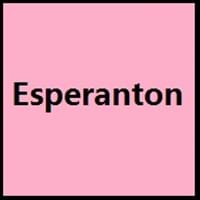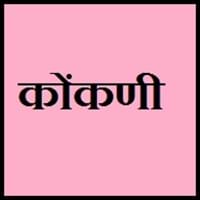Esperanto and Konkani
Countries
East Asia, European Union, South America
India
National Language
East Asia, European Union
India
Second Language
Central Europe, East Asia, Eastern Europe, South America
Not spoken in any of the countries
Speaking Continents
Asia, Europe, South America
Asia
Minority Language
Not spoken in any of the countries
Not spoken in any of the countries
Regulated By
Akademio de Esperanto
Govenment of Goa
Interesting Facts
- The most widely spoken constructed language in the world is Esperanto.
- Esperanto is an artificial international language.
- Fr. Thomas Stevan wrote the first book in Konkani in 1651.
- Sahitya Academy recognized konkani as a language in year 1976.
Similar To
Not Available
Marathi
Derived From
Not Available
Sanskrit Language
Alphabets in
Esperanto-Alphabets.jpg#200
Kokani-Alphabets.jpg#200
Writing Direction
Not Available
Left-To-Right, Horizontal
Thank You
Dankon
Dev Borem Korum
How Are You?
Kiel vi sanas?
kaso assa?
Good Night
Bonan nokton
Rati Boren Zavonn
Good Evening
Bonan vesperon
Sanj Borem Zavonn
Good Afternoon
Bonan posttagmezon
Not Available
Good Morning
Bonan matenon
Dis Borem Zavonn
Sorry
Mi bedaŭras!
Maf kor
I Love You
Mi amas vin
hav tujo mog korta.
Excuse Me
Pardonu!
upkar korxi
Dialect 1
Not present
Antruz
Where They Speak
Not present
Goa
Dialect 2
Not present
Not present
Where They Speak
Not present
Not Available
Dialect 3
Not present
Not present
Where They Speak
Not present
Not Available
Speaking Population
Not Available
Second Language Speakers
Not Available
Native Name
Esperanto
Kōṅkaṇī
Alternative Names
Eo, La Lingvo Internacia
Konkan standard, Bankoti, Kunabi, North Konkan, Central Konkan, Concorinum, Cugani, Konkanese
French Name
espéranto
konkani
German Name
Esperanto
Konkani
Pronunciation
[espeˈranto]
kõkɳi
Ethnicity
Not Available
Konkanis
Language Family
Indo-European Family
Indo-European Family
Subgroup
Not Available
Not Available
Branch
Not Available
Not Available
Early Forms
Proto-Esperanto
No early forms
Standard Forms
Esperanto
Kokani
Signed Forms
Signuno
Indian Signing System (ISS)
Scope
Individual
Individual, Macrolanguage
ISO 639 1
eo
No data available
ISO 639 6
Not Available
Not Available
Glottocode
espe1235
goan1235
Linguasphere
51-AAB-da
No data available
Language Type
Constructed
Living
Language Linguistic Typology
Not Available
Subject-Object-Verb
Language Morphological Typology
Agglutinative
Not Available
All Esperanto and Konkani Dialects
Most languages have dialects where each dialect differ from other dialect with respect to grammar and vocabulary. Here you will get to know all Esperanto and Konkani dialects. Various dialects of Esperanto and Konkani language differ in their pronunciations and words. Dialects of Esperanto are spoken in different Esperanto Speaking Countries whereas Konkani Dialects are spoken in different Konkani speaking countries. Also the number of people speaking Esperanto vs Konkani Dialects varies from few thousands to many millions. Konkani dialects include: Antruz Also learn about dialects in South American Languages and North American Languages.
Esperanto and Konkani Speaking population
Esperanto and Konkani speaking population is one of the factors based on which Esperanto and Konkani languages can be compared. The total count of Esperanto and Konkani Speaking population in percentage is also given. The percentage of people speaking Esperanto language is Not Available whereas the percentage of people speaking Konkani language is 0.11 %. When we compare the speaking population of any two languages we get to know which of two languages is more popular. Find more details about how many people speak Esperanto and Konkani on Esperanto vs Konkani where you will get native speakers, speaking population in percentage and native names.
Esperanto and Konkani Language Codes
Esperanto and Konkani language codes are used in those applications where using language names are tedious. Esperanto and Konkani Language Codes include all the international language codes, glottocodes and linguasphere.





